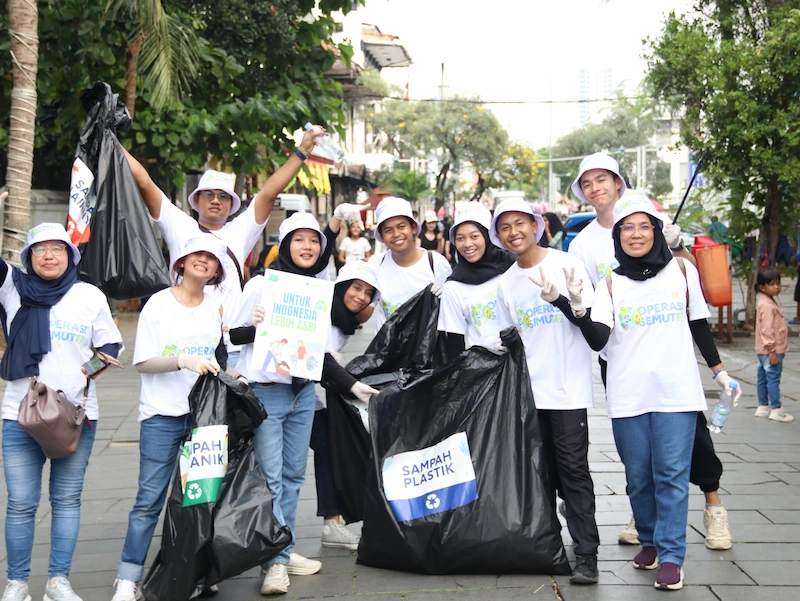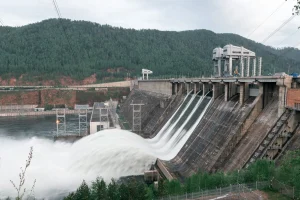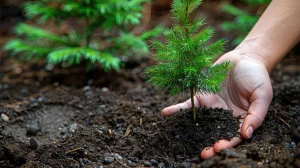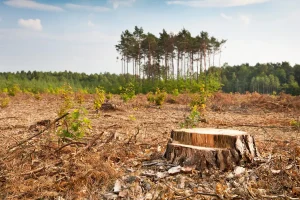Table of Contents
While it seems simple, you may still be confused about how to get rid of trash properly. Disposing of trash may seem like an easy task, but doing it incorrectly can cause serious damage to the environment.
As someone responsible for ecological well-being, you need to understand the proper way to dispose of waste.
Remember, getting rid of trash is not just about collecting everything and throwing it away carelessly. There are several steps you should take to ensure that your trash is managed and utilized properly.
When trash is properly managed, it can provide a range of benefits. For example, some types of waste, e.g. household waste, can be reused or recycled for various purposes.
Unfortunately, Badan Pusat Statistik Indonesia released the 2018 Indonesian Environmental Index Report stating that many Indonesians still lack awareness when it comes to waste management.
Therefore, it is essential to know how to get rid of the trash properly or even turn it into something valuable.
This article will discuss proper steps for waste disposal along with its benefits. You’ll also discover the risks that arise when waste is not disposed of properly. So, stick around until the end!
How to Get Rid of Trash Properly
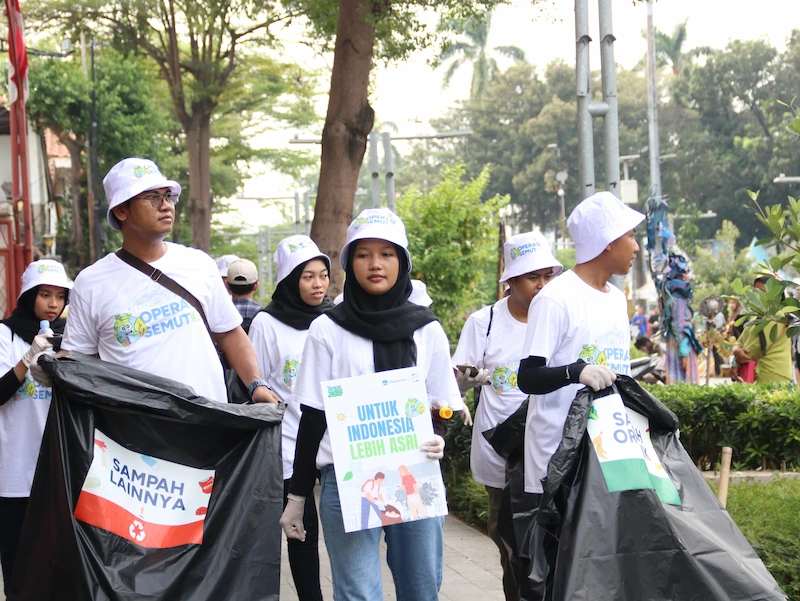
As mentioned earlier, you start to dispose of trash by sorting it based on its type. If you still have no idea how to dispose of waste properly, here’s a complete guide to help you:
1. Understand Different Types of Waste
The first step to proper waste disposal is recognizing the various types of waste. Waste is categorized into three main types: organic waste, inorganic waste, and hazardous waste (B3).
Organic waste is a type of waste that can decompose naturally. It comes from organic materials that can break down through natural processes like decay, such as household waste, paper, and leaves.
Inorganic waste, on the other hand, is the type of waste that is more difficult to break down naturally. As a result, it tends to accumulate if left unchecked. Some examples of inorganic waste include glass and metals.
Hazardous waste (B3) is waste that contains harmful chemicals which can pose a threat to the environment if released improperly. Therefore, hazardous waste requires special handling by authorities. Some examples of hazardous waste include batteries, fluorescent lamps, and used oil.
2. Sorting Waste by Type
Once you understand the different types of waste, you can start sorting it. This step aims to make the recycling process more efficient.
To sort waste, you can use labels or markers to indicate the type of waste in each category so that the disposal process runs smoother and more effectively.
3. Depositing Waste at a Waste Bank
A waste bank is an effective solution for how to get rid of trash in large amounts efficiently. The waste deposited there will be processed by experts, depending on the type of waste. Furthermore, waste banks can connect to advanced recycling facilities that can turn materials into valuable products, such as polyester thread, plastic paving blocks, and plastic pellets, making them a key part of your strategy for how to get rid of trash sustainably.
Therefore, after sorting your waste, you should try depositing it directly at a waste bank. This way, you can ensure that the waste remains separated by type, as there is a risk that sorted waste may get mixed back together if taken to a general landfill.
If you’re in Jakarta, you’re in luck! Dinas Lingkungan Hidup DKI Jakarta offers an interesting program where you can deposit your sorted waste at a waste bank in exchange for money. To help you find one, there’s a map of waste banks available in the area.
In addition to those managed by Dinas Lingkungan Hidup DKI Jakarta, there are also other waste banks you can visit, such as Rebricks Indonesia, Rubah Kertas, and Kamibox.
Also read: Is Throwing Waste in the Bin Enough to Solve the Trash Problem?
Benefits of Proper Waste Disposal
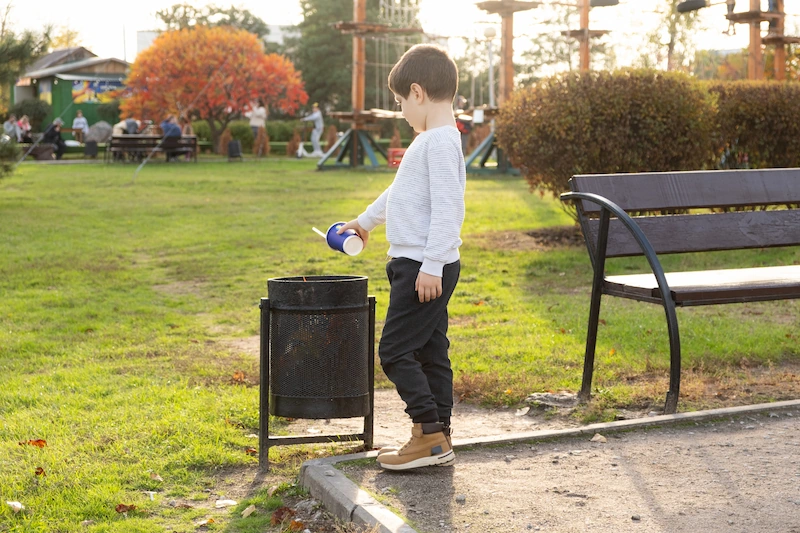
Now that you know how to get properly rid of trash, you should know the benefits of such actions.
Properly disposing of waste brings various ecological and economic benefits, such as offering a positive impact on the environment and even financial rewards. See other benefits of good waste management practices below:
1. A Greener Environment
Proper waste management leads to a cleaner, more pleasant environment to live in. Most importantly, the cleanliness and orderliness of waste disposal also create a significant impact on some areas such as water sources, flood zones, and tourist attractions.
2. Economic Benefits
By properly disposing of your waste, you are not only contributing to preserving the environment but also gaining economic benefits, as the recycling industry creates numerous job opportunities.
For instance, recycling metal and electronic waste requires significant labor for extraction and reassembly.
You may even have the chance to earn money by depositing waste at a waste bank, such a program run by Dinas Lingkungan Hidup DKI Jakarta. Pretty interesting, right?
Also read: What Is Circular Economy? Here’s How Circular Economy Actions Benefit Our Environment
3. Avoiding Dangerous Diseases
If left unmanaged, piles of waste can attract disease-carrying pests like mosquitoes, flies, and rats. Of course, you wouldn’t want to risk exposure to harmful diseases. That’s why you need to manage waste properly and promptly.
The Dangers of Poor Waste Management
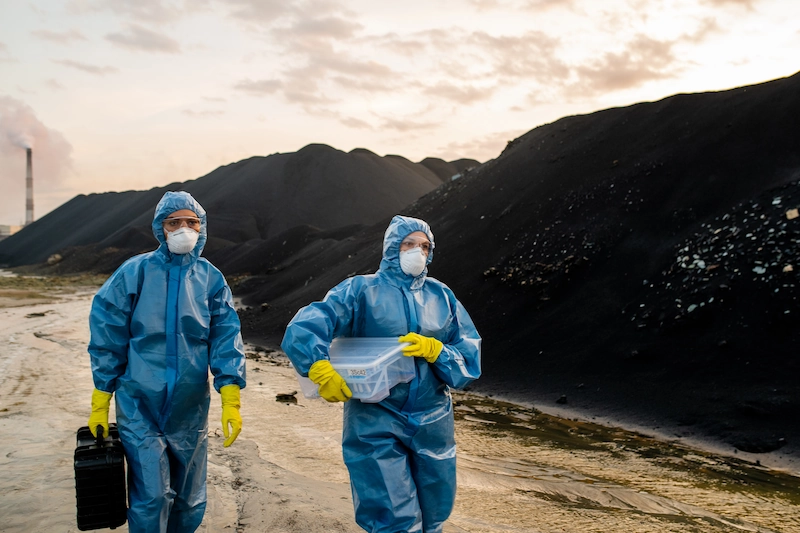
1. Increased Risk of Spreading Dangerous Diseases
Waste can be a breeding ground for many harmful diseases. Beyond pests, the hazardous substances in the waste can contaminate agricultural land, water sources, and the air, which consequently leads to severe health impacts.
2. Unpleasant Living Conditions
An environment filled with unmanaged waste may lead to some serious issues. For instance, it can produce unpleasant odors, contaminate drinking water, create unsightly landscapes, and even increase crime rates.
3. Increased Risk of Natural Disasters
Accumulated waste can significantly increase the risk of natural disasters. For instance, waste that is improperly disposed of near rivers or waterways can lead to soil erosion, landslides, and even flooding.
4. Long-Term Damage to Ecosystems
Waste that contaminates the soil, water, and air can severely damage the natural habitats of wildlife, ultimately disturbing the balance of ecosystems.
This issue should not be ignored, as it often leads to conflicts between wild animals and humans, many of which are triggered by poor waste management.
Also read: Why Humans Play a Crucial Role in Environmental Conservation
By knowing how to get rid of trash and following simple steps to manage waste properly, you can contribute to a healthier environment. Proper waste management brings numerous benefits to both human life and the surrounding ecosystem while improper waste disposal, on the other hand, can cause serious risks.
| Key terms | Description |
| Organic Waste | Waste derived from living organisms that can decompose naturally, such as food scraps and leaves. |
| Inorganic Waste | Non-biological waste that is difficult to break down naturally, often originating from industrial processes like plastics. |
| Hazardous Waste (B3) | Materials that contain toxic chemicals which pose a threat to the environment and health if not handled properly. |
| Waste Bank | A facility where sorted waste is collected and managed, often providing economic rewards for contributors. |
| Recycling | The process of converting waste materials into new, reusable objects to prevent waste of potentially useful materials. |
| Decomposition | The natural process by which organic substances are broken down into simpler matter by microorganisms. |
| Landfill | A designated site for the disposal of waste materials by burial, often the final destination for non-recyclable trash. |
By disposing of and managing waste responsibly, you can contribute to environmental conservation. One such initiative is #AksiAsri by Indonesia Asri, which includes the Operasi Semut program.
Just like you, who contribute directly to environmental conservation, this initiative is also a concrete expression of Chandra Asri Group’s commitment to environmental care. This activity focuses on educating the public about the importance of sorting waste (#pilahsampah) before disposal.
Interested in becoming part of Warga Asri? Sign up now to directly engage in preserving our planet for future generations. Visit our website for more information and join us in protecting the environment and our beloved nature!
Read also: Beware! Don’t Underestimate This Waste in Your Home!



